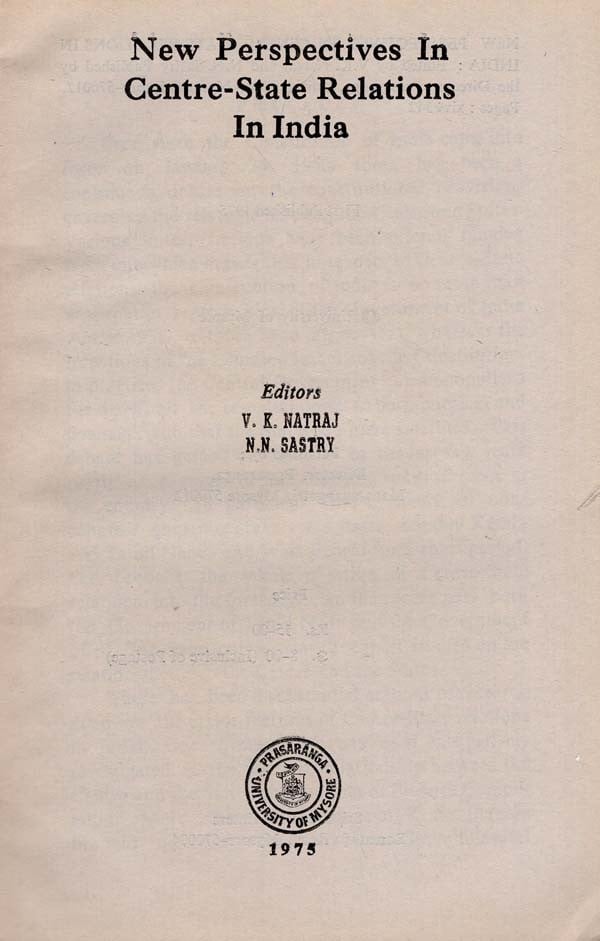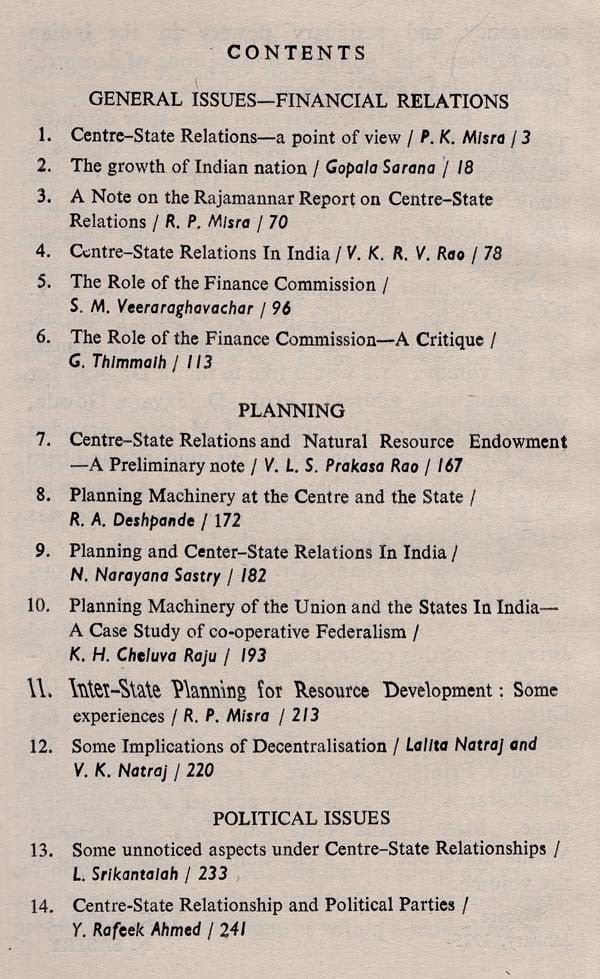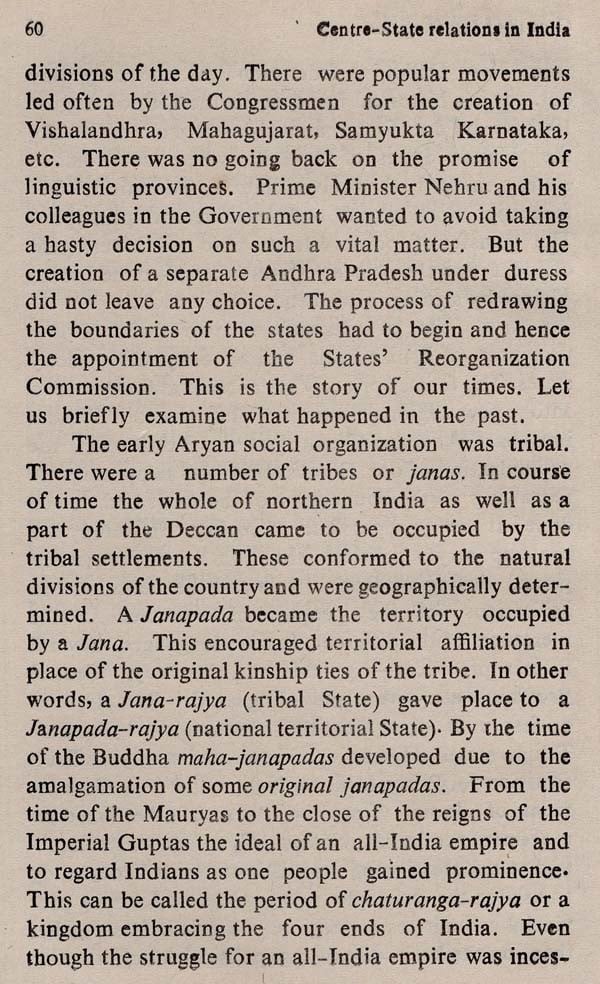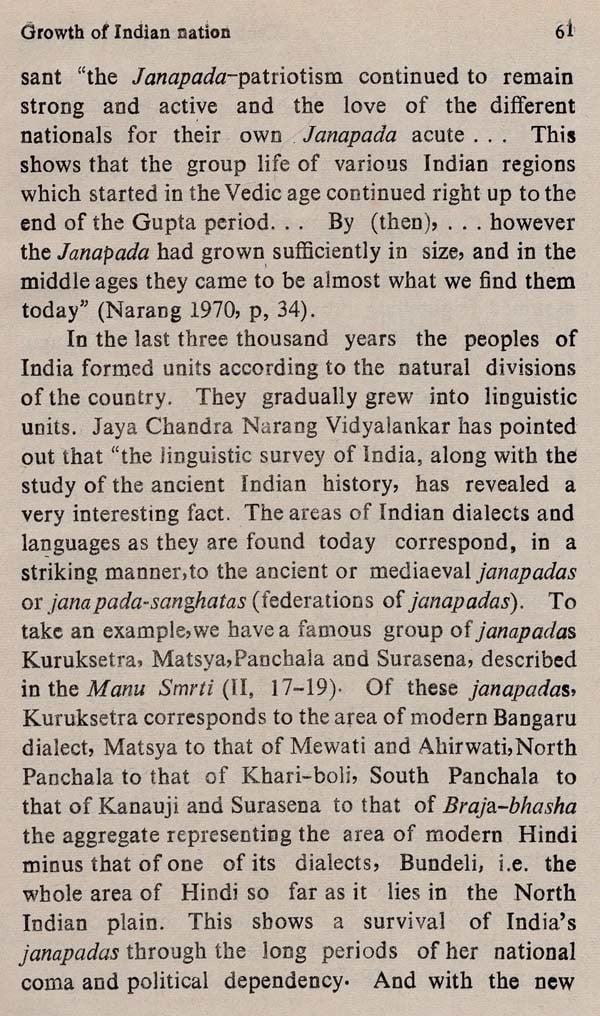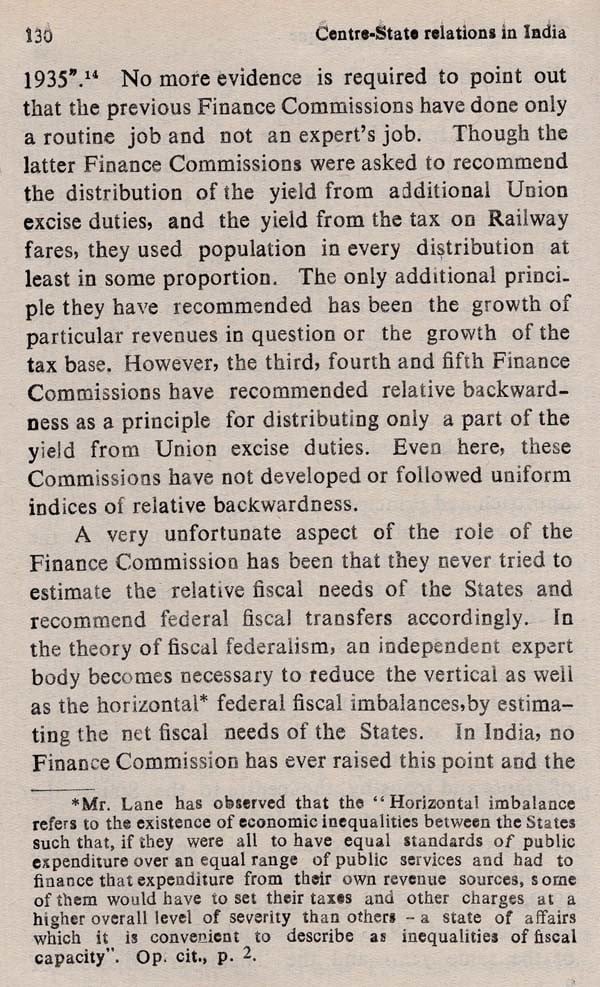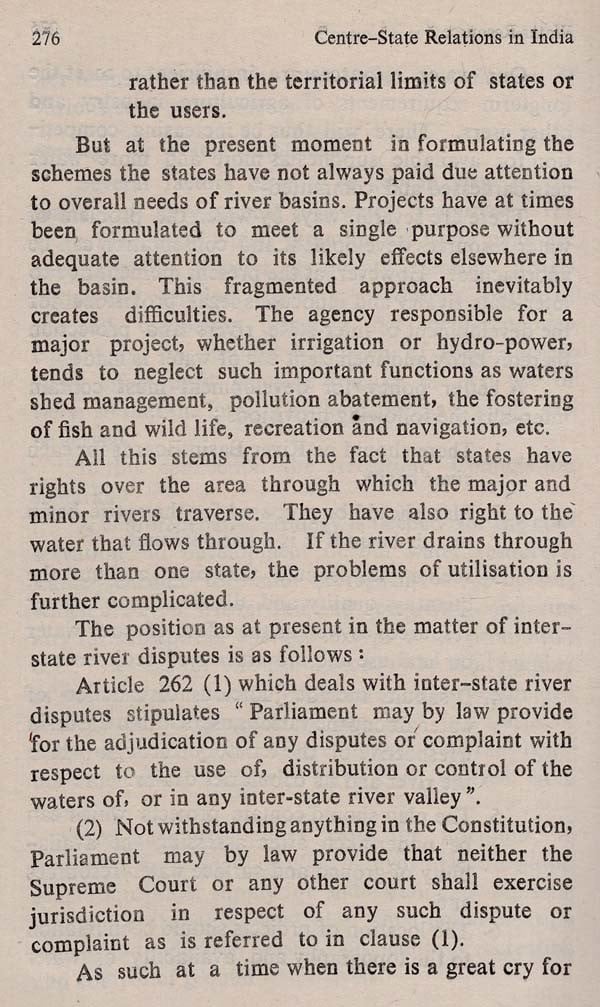
New Perspectives in Centre-State Relations in India (An Old and Rare Book)
Book Specification
| Item Code: | AZE102 |
| Author: | V.K. Natraj and N.N. Sastry |
| Publisher: | UNIVERSITY OF MYSORE, MYSORE |
| Language: | ENGLISH |
| Edition: | 1975 |
| Pages: | 352 |
| Cover: | PAPERBACK |
| Weight | 350 gm |
Book Description
It is oriented to' inter-disciplinary teaching and research. Its main activities are post- graduate teaching programmers, short-term training courses and research projects. One of the major aims of the Institute is the integration of teaching and research activities.
The Institute runs a 2-year professional Master's Degree course in Urban and Regional Planning, (MURP), a 2-year Master's Degree course, in Development Planning (MDP), and a one year Diploma in Environ- mental Planning.
The Institute runs periodic training programmers for in-service personnel engaged in planning work and also for teachers and researchers. In 'addition it conducts seminars, symposia and workshops on subjects related to development and planning. The first Asian Symposium on Regional Planning and National Development was held in July 1974.
The papers in this volume were presented at a seminar organized by the Institute on Centre-State relations in India. The papers are grouped, broadly under the following headings - General issues, Financial Relations, Planning, Political issues and Inter- State disputes. One of the objectives of the seminar was to focus attention not only on the better known aspects of Centre-State relations such as those relating to finance and planning but also on the sociological perspective and on issues such as nation- building, inter-state disputes, development of political parties, etc. The papers in this volume therefore attempt to break fresh ground in an area which by its very nature is complex and is subject to continuous change.
N. Narayana Sastry, M.A. Dip T&C.P., Lecturer, Institute of Development Studies is currently pursuing advanced studies in the Centre for Urban Studies, University College, London. He has published Urban Studies - Some Contributions with D. C. Jayasankar.
There has been a substantial amount of research done on the major features of Centre-State relations in India. One theme which has been exhaustively investigated is the financial relationship between the Centre and the States and the role of Finance Commission. More than a decade ago K. Santhanam brought out his study on Union-State financial relations. With the accelerated pace of planning and development in the country, this question has assumed special significance. The Sixth Finance Commission made a departure by having as one of its members B. S. Minhas, who was also a member of the Planning Commission. This is indicative of the recognition of the importance of establishing a viable and systematic relationship between the Centre and States in the field of finance. The appointment of a member of the Planning Commission to the Finance Commission was intended to provide co-ordination between these two bodies. Added to this is the fact that both the Planning Commission and the Central Government are now insistent that the State Governments build up adequate machinery for planning. There is even talk of a greater degree of decentralization in planning reaching down to the district level. However, this is not an entirely new development. The Administrative Reforms Commission, both in its report on Centre-State Relationships and the report on the Machinery for Planning envisaged the need for the State Governments to take the task of planning more seriously. The Study Team on Centre- State Relationships made pointed reference to the excessive power exercised by Central Ministries over the State Governments in the field of planning. Governments like those of Tamil Nadu which have been particularly vociferous in their demand for financial autonomy, have been insisting for some time now that the financial powers given to the States are hardly commensurate with the responsibilities thrust on them, particularly in the field of planning.
**Contents and Sample Pages**
